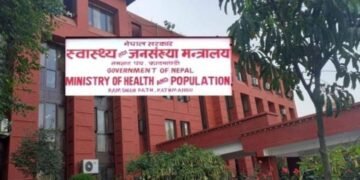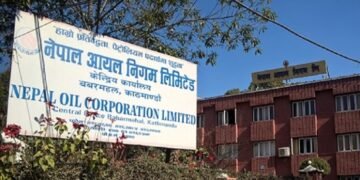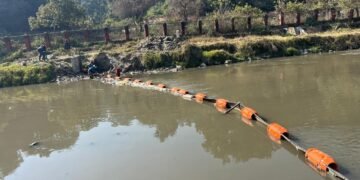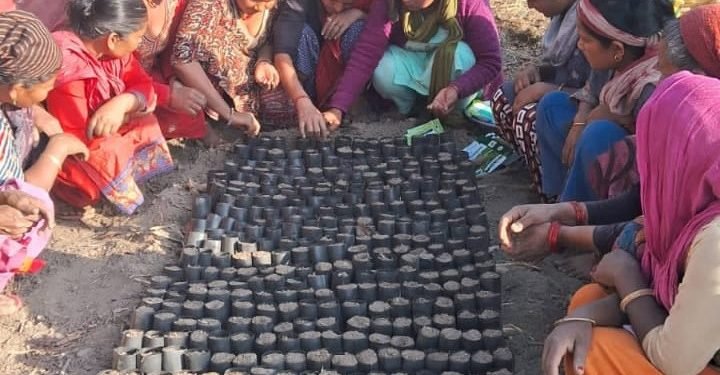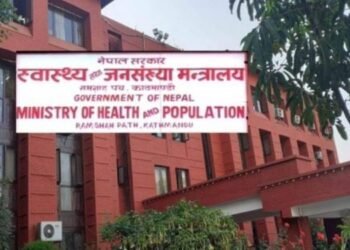Kathmandu, May 14: Many communities residing in Nepal’s riverside areas often depend solely on agriculture to sustain their livelihoods, and are particularly vulnerable to external shocks and stressors due to their location.
For these communities, riverbed farming is a more climate-resilient option for producing seasonal crops, vegetables, and fruits because it utilises flat riverbeds or basins for seasonal agriculture that are often left unused after and before the monsoon.
To enhance the economic resilience of marginalized and vulnerable farmers, USAID’s TayarNepal, together with FORWARD Nepal, has announced the promotion of riverbed farming in its partner municipalities of Godawari, Lamkichuha, and Rajapur.
To date, the project has trained 338 beneficiaries (from 17 farmers’ groups) on field-level nursey training, covering topics, such as site and crop selection, seeding techniques using poly bags, manuring, irrigation, and protection measures against diseases and pests through biopesticides, according to USAID.
Through target support to vulnerable populations, USAID is helping to build a more equitable and resilient future in Nepal, it said.

